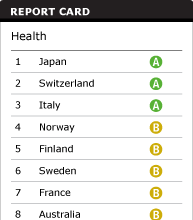During the last few months of pregnancy, many women find it difficult to fall asleep and stay asleep. The uterus puts pressure on the bladder and gets in the way of finding a comfortable sleep position. Just after giving birth, the frequent checks from nurses in the hospital and immediate postpartum body changes can make it difficult to sleep. Many new moms hope that once they get home, they’ll be able to catch up on much-needed sleep. However, postpartum insomnia is more common than you might think. Here are some tips on how to sleep better after giving birth.
Be Careful With Caffeine
Many women give up caffeine during pregnancy. It’s a good idea to limit coffee, tea and soda after giving birth, too. Avoid consuming caffeinated drinks or foods after 2:00 pm. Some women find that their babies are sensitive to caffeine in their milk, so limiting caffeine consumption could help you and your baby sleep better.
Lessen Anxiety
New moms often worry about everything related to the baby. If you’re worried about your baby’s health, talk to the pediatrician, your midwife or physician with any specific questions you have. Keep a notepad and paper by your bed so that you can write down concerns or questions. Do a brain dump of thoughts before your bedtime. Trust that your baby’s cries will wake you, even if you’re in a deep sleep.
Simplify Night Feedings
Newborn babies need to eat every couple of hours. Their tummies only hold a couple of ounces of liquid. If you’re nursing, try to latch on without turning on all of the lights. Keep a little flashlight next to your bed or rocking chair, and use it instead of turning on a bright light. Avoid amusing yourself with your phone while feeding the baby. The device’s blue light will awaken your brain. If you’re formula-feeding, prep bottles in the evening. If possible, alternate bottle feedings with your partner. This allows each of you to get a longer stretch of sleep overnight. Use a bassinet or co-sleeper in your bedroom, and return the baby to it after each feeding. This keeps the baby safe and allows you to get comfortable in your new bed.
Create a Conducive Sleep Environment
Your bedroom should be a haven for rest. Reserve this space for sleep and intimacy. Avoid using your bedroom as a place to play with your baby, work from home or watch shows. Maintain a comfortable temperature between 65 and 75 degrees Fahrenheit. Eliminate light sources, and use room-darkening blinds. It’s a good idea to remove all electronic devices from your bedroom. Even their power indicators emit enough light to trick your brain into thinking it’s morning.
Use Relaxation Techniques
New moms often worry so much, they get tense and have trouble sleeping. Try practicing relaxation techniques, such as progressive muscle relaxation or deep breathing. Try a mind game, such as thinking of a boy’s name for each letter of the alphabet, then a city name for each letter of the alphabet. If you find yourself anxious, depressed or not feeling like yourself, do not hesitate to reach out to your obstetrician-gynecologist, family doctor or a therapist.








